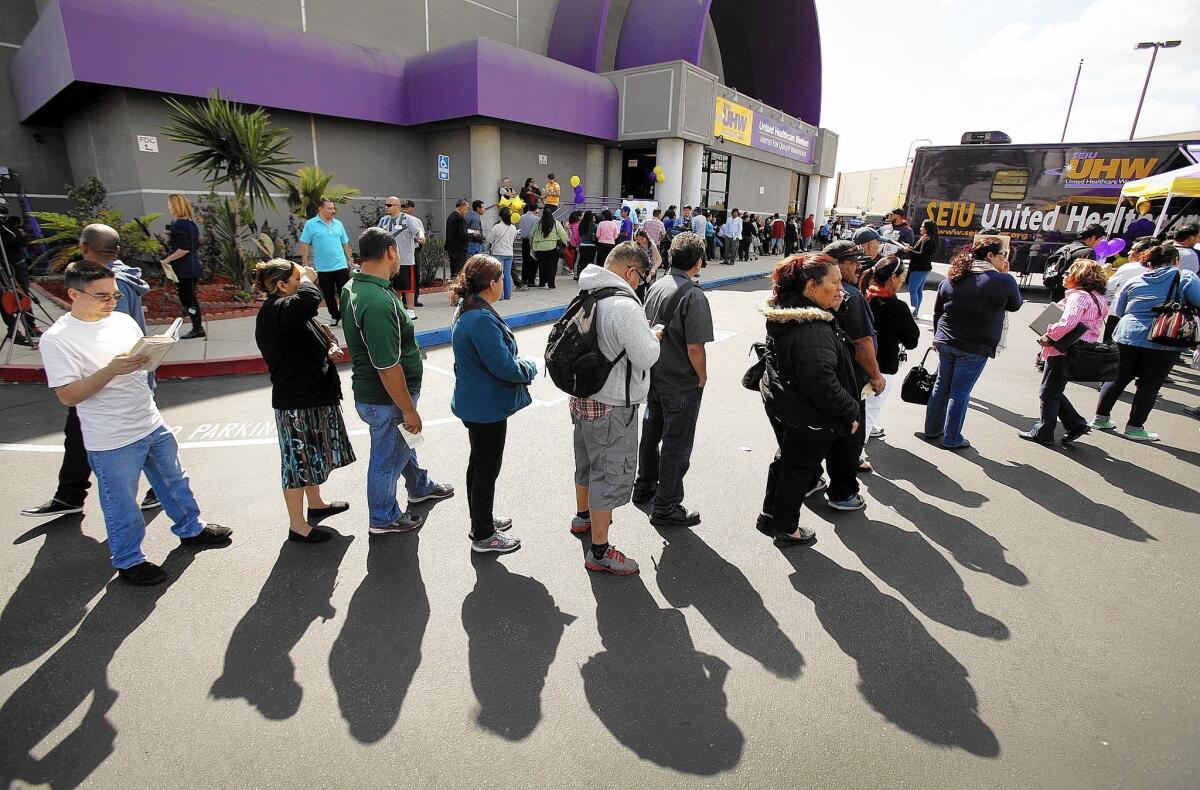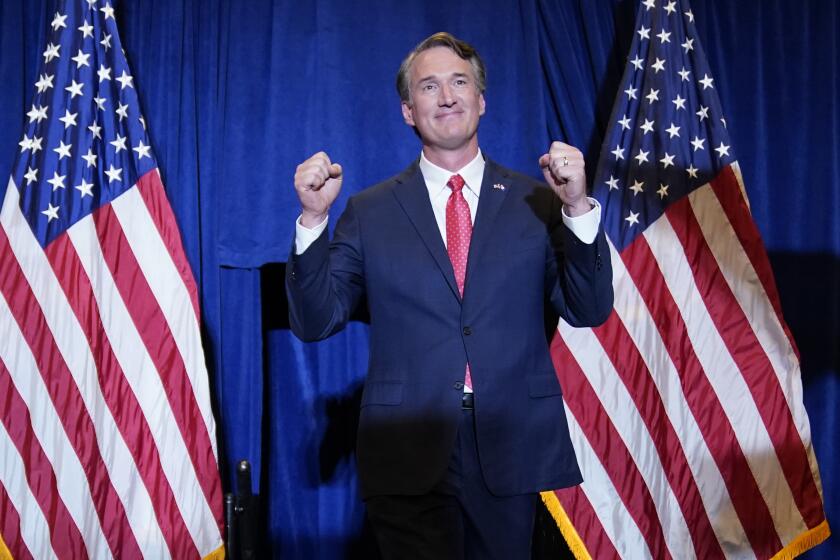Number of Latinos with insurance coverage surges under healthcare law

Reporting from WASHINGTON — The federal healthcare law has dramatically increased coverage among Latinos, according to a new report that provides a comprehensive look at the effects of the Affordable Care Act on a historically underinsured community.
Overall, the percentage of Latinos ages 19 to 64 lacking health coverage fell from 36% to 23% between summer 2013 and spring 2014.
That parallels a broader increase in coverage that has taken place since insurance marketplaces opened last fall and states began expanding Medicaid under the healthcare law.
The overall uninsured rate for U.S. adults under 65 plummeted from 20% to 15% in the same period, according to the Commonwealth Fund, a nonprofit group that studies U.S. and global health systems. Other surveys have shown similar declines.
But many of the health law’s supporters were concerned that the expansion in coverage would not reach Latinos and other groups that have traditionally struggled to access regular medical care.
“The Affordable Care Act appears to be working for millions of Latinos who, as a group, have long faced the nation’s highest uninsured rates,” said the Commonwealth Fund’s Michelle Doty, the report’s lead author. “These substantial improvements will mean better health and healthcare for millions of people.”
This year, the law enabled Americans who don’t get health benefits at work to shop among plans on new state-based marketplaces. Those making less than four times the federal poverty level — or about $94,000 for a family of four — qualify for subsidies.
About half of the states also expanded Medicaid this year to provide fully subsidized government coverage to people making less than 138% of the poverty line — about $32,500 for a family of four — an option provided under the law.
The Medicaid expansion proved particularly important for Latinos, the Commonwealth Fund report indicates.
In states that expanded Medicaid, including California, the uninsured rate among working-age Latino adults dropped by about half, from 35% to 17%.
By contrast, the uninsured rate in states that did not expand Medicaid, including Texas and Florida, was statistically unchanged, according to the report.
Republican opponents of the Affordable Care Act have rejected federal aid to expand Medicaid, saying the expansion includes too many requirements and risks leaving states with future obligations they can’t afford.
Outreach to Latinos has been a key goal of the Obama administration and other supporters of the law.
In California, where Latinos made up about 60% of the uninsured, state officials revamped marketing to Latinos after relatively few initially signed up for coverage through Covered California, the state’s insurance marketplace.
The changes, including increased outreach in Latino communities and enhanced Spanish-language assistance, helped lift Latino enrollment, which ultimately made up about a third of the sign-ups in March, the final month of enrollment
That experience could be instructive when the second enrollment period begins in November, the Commonwealth Fund report concludes.
The report was based on two surveys of a random, nationally representative sample of adults ages 19 to 64. The margin of error was plus or minus 2.1 percentage points.
More to Read
Sign up for Essential California
The most important California stories and recommendations in your inbox every morning.
You may occasionally receive promotional content from the Los Angeles Times.











